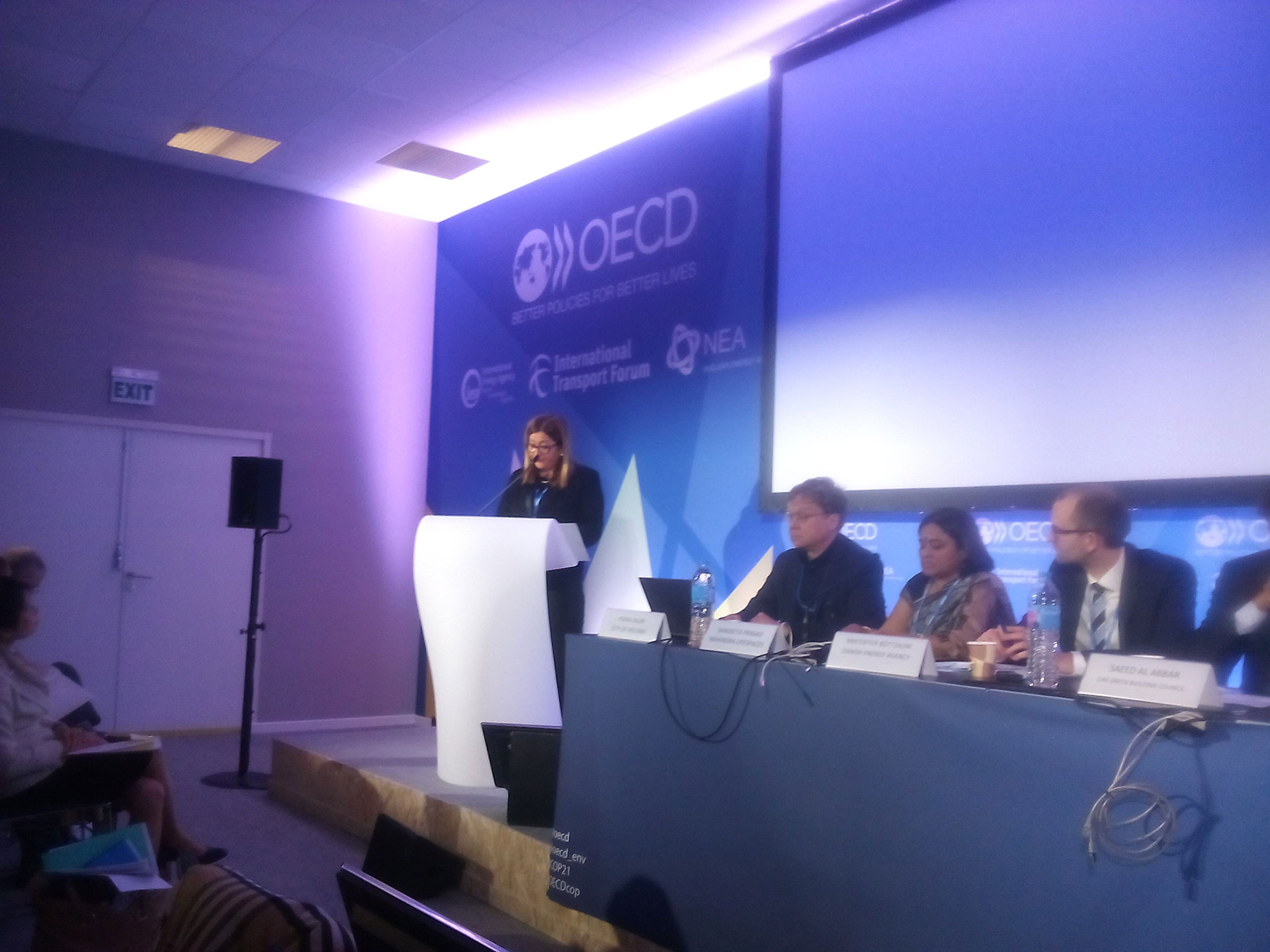The 21st UN Climate Change Conference (21st Conference of Parties – COP21) in Paris began with a ‘Leaders Event’, in which over 150 heads of state and government took part, including the President of Serbia Mr Tomislav Nikolić. Estimates are that this event was attended by more heads of state and government than any other gathering in history. In the addresses during the ‘Leaders Event’ clear political support was offered in achieving an ambitious and efficient agreement in Paris, which will secure future monitoring of the decrease in greenhouse gas emissions, to a level which will limit further increase of global temperatures to 2’С.
The Conference continued with negotiations on particular issues of significance for the agreement in Paris (decrease of greenhouse gas emissions, adaptation, loss and damages, financing, technology development and transfer, the legal nature of the agreement, means of implementation and others), but the progress during the first week of the Conference was unexpectedly slow. Within the negotiating team – which was tasked with preparing the final agreement proposal, containing concrete proposals on the issues of emissions’ reduction, the years in which this can be expected, the level of funding and clearly defined rules, and which was supposed to be adopted by Ministers – an agreement was not reached on the majority of issues. Reaching decision on these issues remains the matter of Ministerial negotiations in the 2nd week of the Conference (7th to 11th December).
The Conference is attended by over 190 official delegations, but also representatives of industry, scientific and expert audiences, the media and non-governmental organisations. Participation of over 50.000 delegates is expected, during the 2 weeks of the Conference. Due to the importance of the event, the 21st UN Conference on Climate Change is during the second, high level part also attended by the delegation of the Republic of Serbia, led by the Secretary of State at the Ministry of Agriculture and Environmental Protection Ms. Stana Božović. The delegation has also been joined by the representatives of the Ministry of Mining and Energy. Apart from the scheduled activities in the negotiating process, Secretary of State Stana Božović took part in a side event, organised by the United Nations Environment Programme (UNEP), Sustainable Energy for All (SE4ALL) and the World Resources Institute (WRI).
At the side event options were considered for cutting emissions at city and local government level. Secretary of State Božović also delivered an opening address at an event attended by Naoko Ishii, CEO and Chairperson of the Global Environment Facility (GEF). The Secretary of State greeted the attendees on behalf of the Government of the Republic of Serbia and highlighted energy efficiency, as an area with the greatest potential to drive down emissions of greenhouse gasses at city and municipality level, but also generally at the national level. In this context she welcomed and reminded attendees that Belgrade is one of the cities included in the Global Initiative on District Energy in Cities, coordinated by UNEP. She said that this partnership will make possible for the City of Belgrade, meaning also for the Republic of Serbia, to find and implement efficient and economic models of district heating, and by extension means of cutting greenhouse gas emissions. She reminded that the recently established partnership with UNEP will enable the use of funds from the Green Climate Fund, the biggest international fund in the area of climate change.
Ms Danijela Božanić, the Head of the Climate Change Department at the Ministry of Agriculture and Environmental Protection, participated in the side event organised by the European Commission’s Directorate-General for Climate Action (DG CLIMA). The side event had as its aim presenting the benefits, for candidate and potential EU membership candidate states, of the regional project Environment and Climate Regional Accession Network (ECRAN), funded by the European Commission. Božanić stated that the key gain of programme participation is the possibility to encounter and understand EU legislation in this area, and based on that form a realistic estimate on the needs and possibilities in the context of implementing EU legislative requirements at the national level. She underlined that the direct benefit is also the direct communication and cooperation with the representatives of the Directorate-General for Climate Action, EU member states’ institutions and regional states.
Negotiations at the UN Climate Change Conference continue with the high level phase of the Conference (7th December), attended by high level representatives of participating states.
For more information: COP21 UNFCCC






